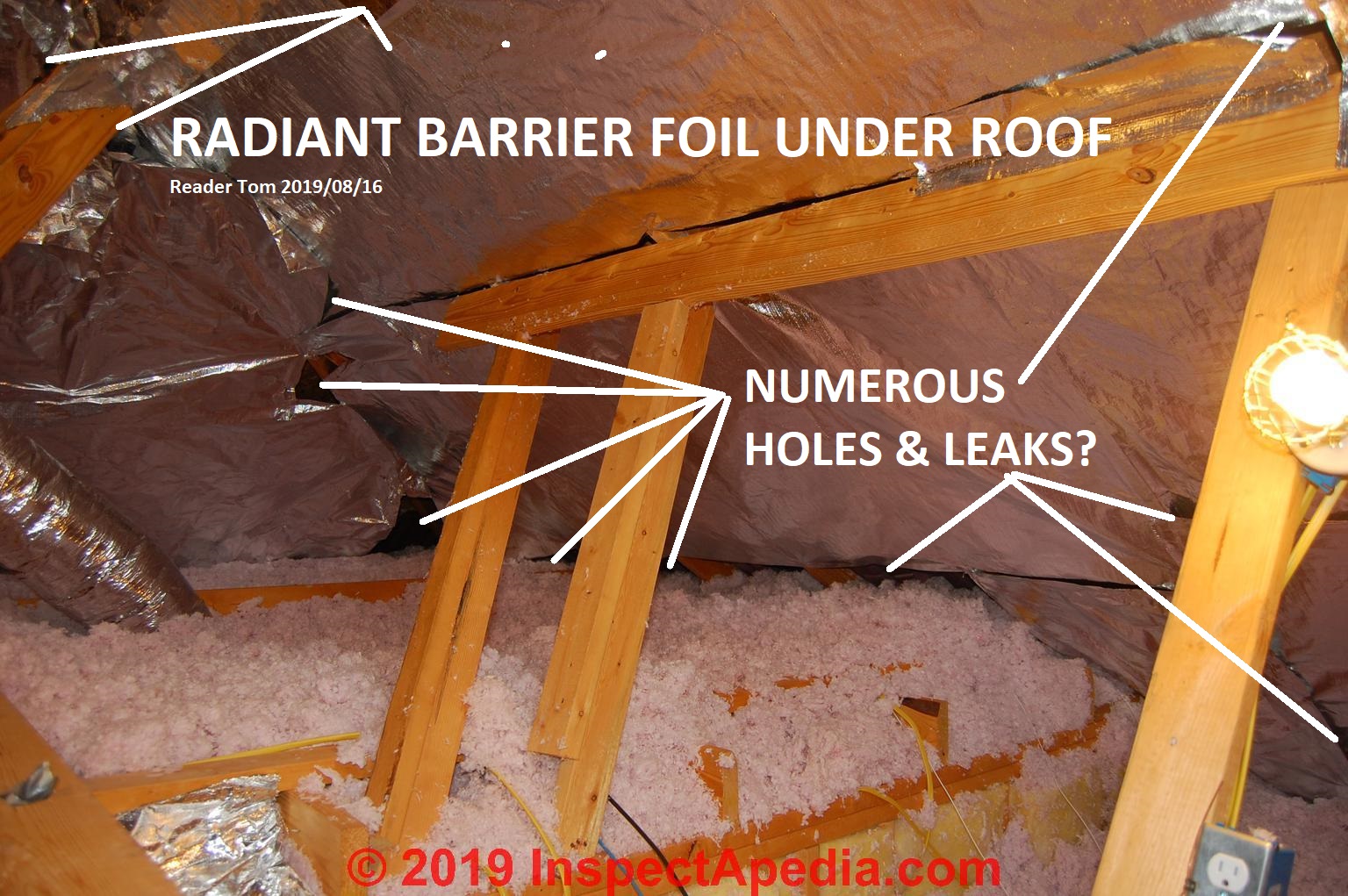Barrel type tiles or roofs installed over wood battens which create the needed air space.
How do you add radiant foil to your roof sheathing.
Radiant energy transferred through standard roof sheathing creates heat build up in the attic.
There are several types of roofs that have an air space between the roofing material and the roof deck.
Even with excellent airflow in an attic the temperature of the top surface layer of the insulation will only drop a few degrees.
A radiant barrier is typically stapled to the bottom truss chords against the deck sheathing.
The only way is if you can create an air space on one side of the foil.
Adding more attic ventilation will help but not much.
How traditional roof sheathing works.
Thermostat radiant barrier roof sheathing can help you earn leed points under the nahb green building standard.
However radiant barriers can also be installed in other ways such as having it infused with your roof decking or underneath tiles.
We take a look at how radiant barriers work the different types of radiant barriers and some of the.
Without the foil layer the osb sheathing will absorb heat and radiate it into the attic space in the summer or outside during the winter.
With no barrier to restrict the heat it radiates through the insulation into living spaces causing room.
Radiant barriers are utilized to reduce summer heat gain in attics and help to improve the efficiency of green building envelopes.
Black asphalt roof shingles absorb over 90 of the radiant heat that strikes them making them easily over 170 degrees on a hot summer day.
Starting at one end of your attic install our ultima foil breathable radiant barrier over across attic floor joists plywood decking or existing insulation.
This depends on the r values of insulation installed design of the building and other factors.
A radiant barrier can lower heat transfer from attics to the building below keep the attic space cooler and lower cooling costs by up to 17 in warmer climates.
Use a stick 1 4 furring strip with nail in the end works well to help push the barrier into the tight spaces of your attic.
The radiant foil layer is perforated for ventilation to protect against condensation and moisture build up.
There is a way to incorporate radiant barrier foil into a re roofing application.

